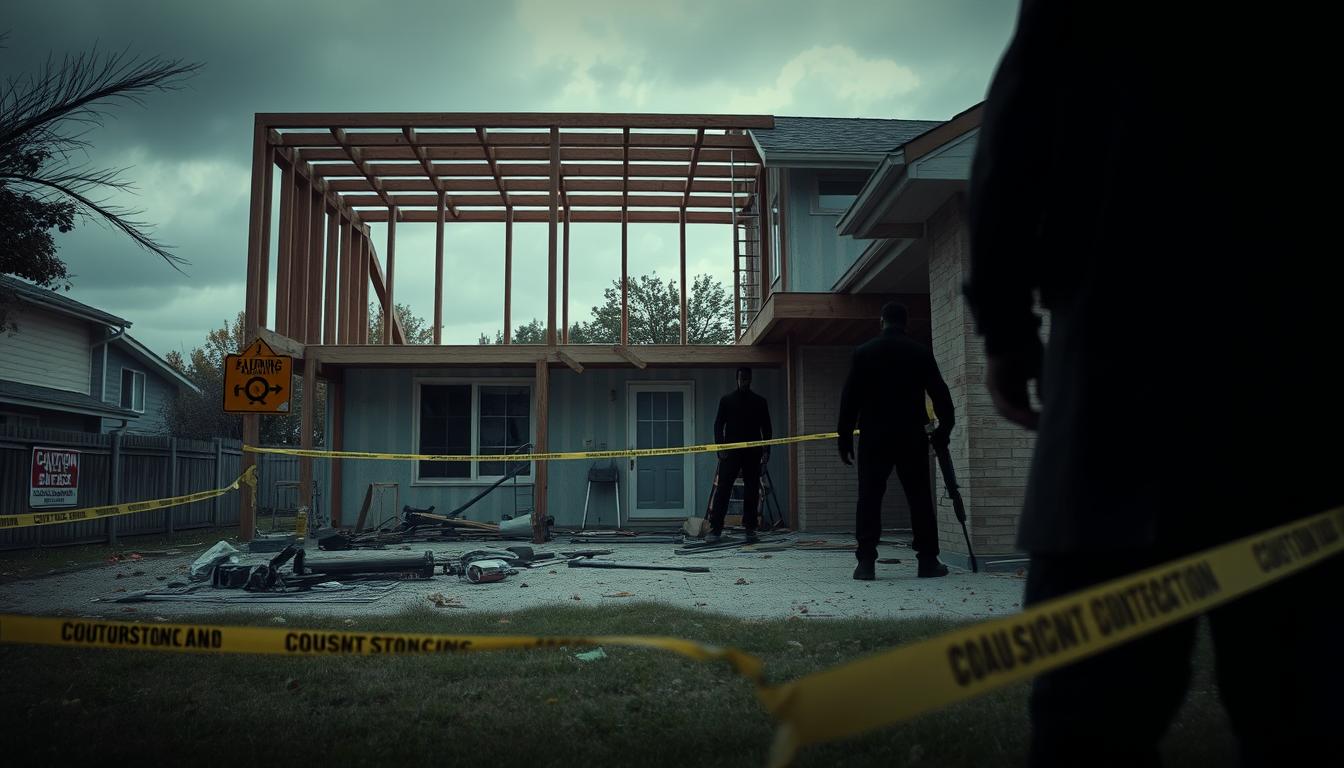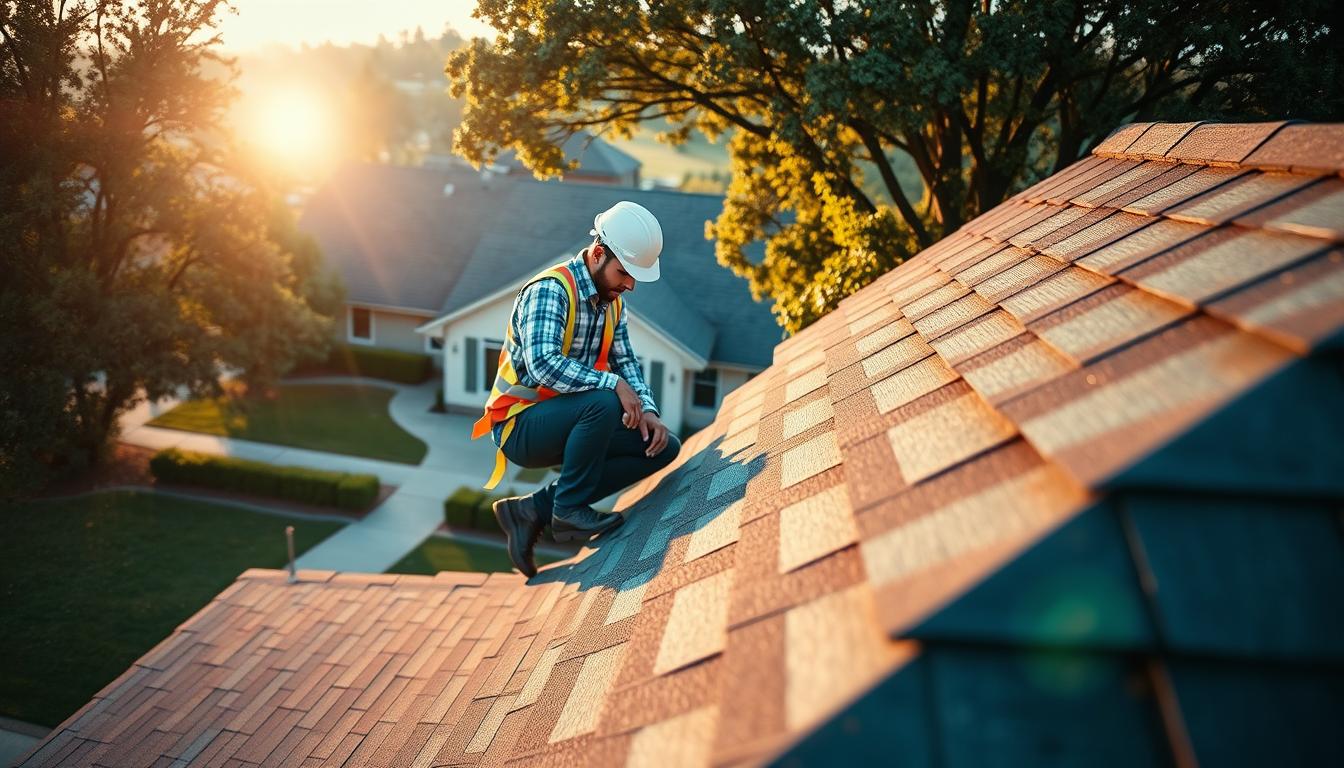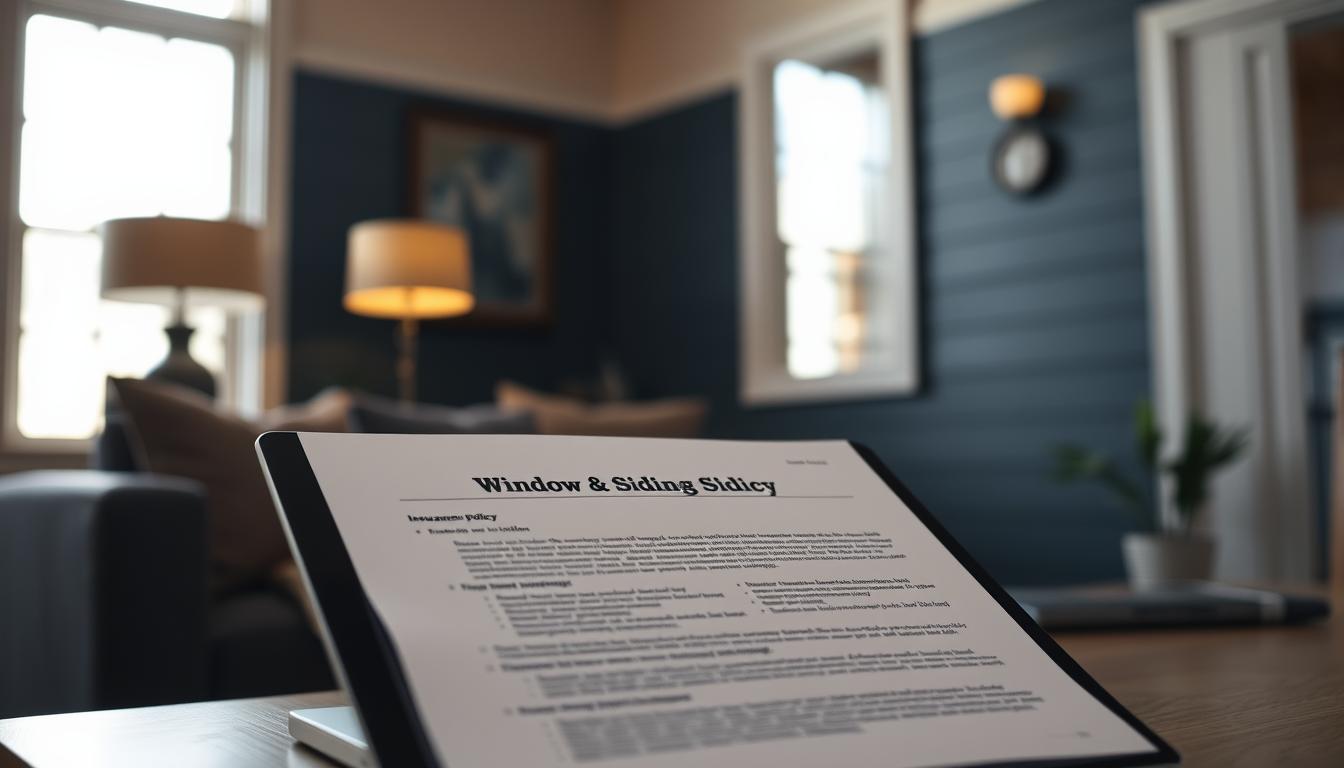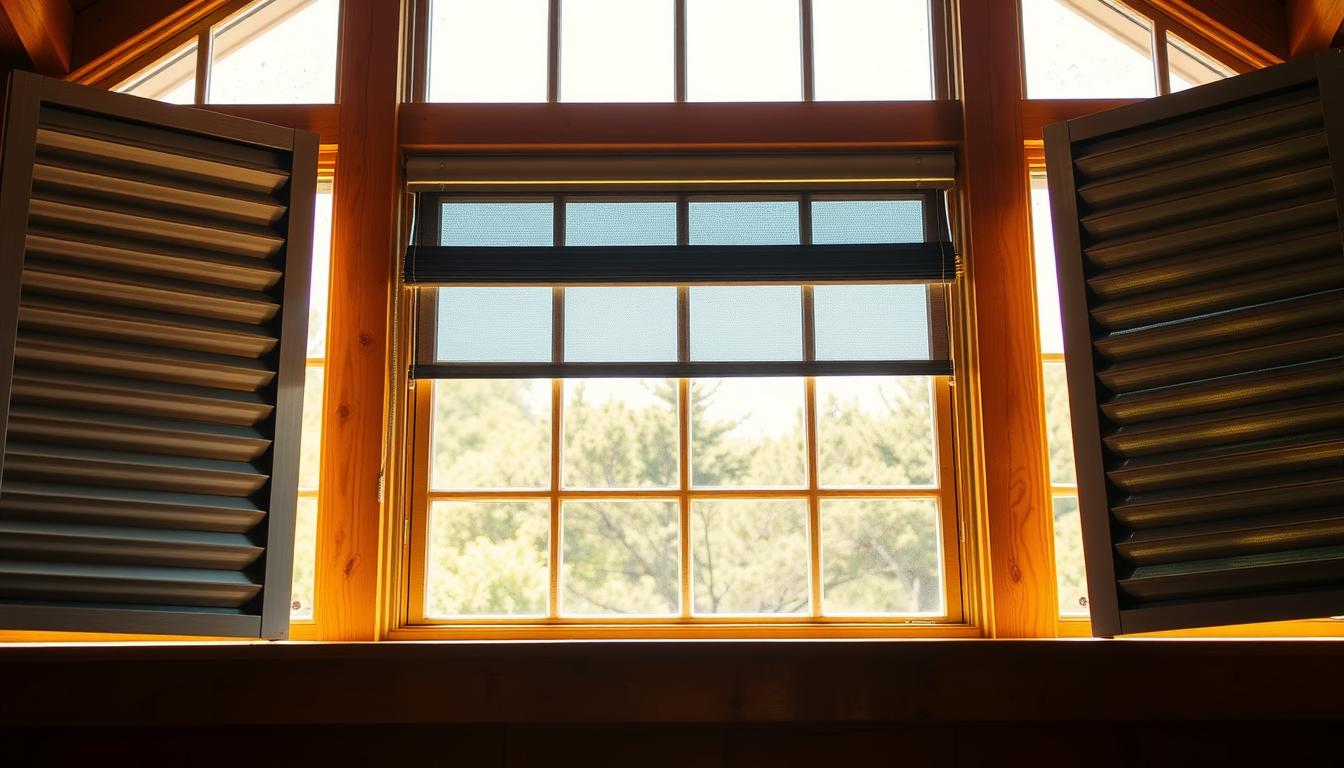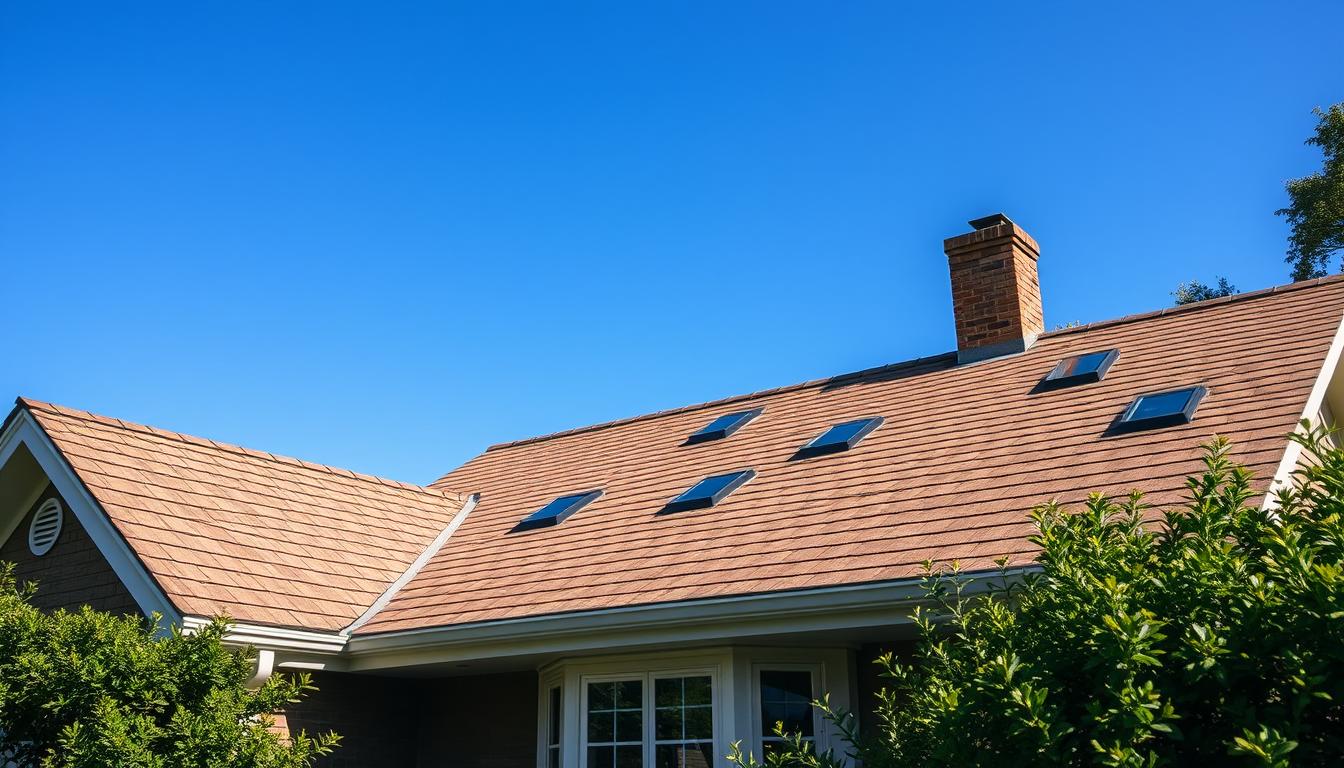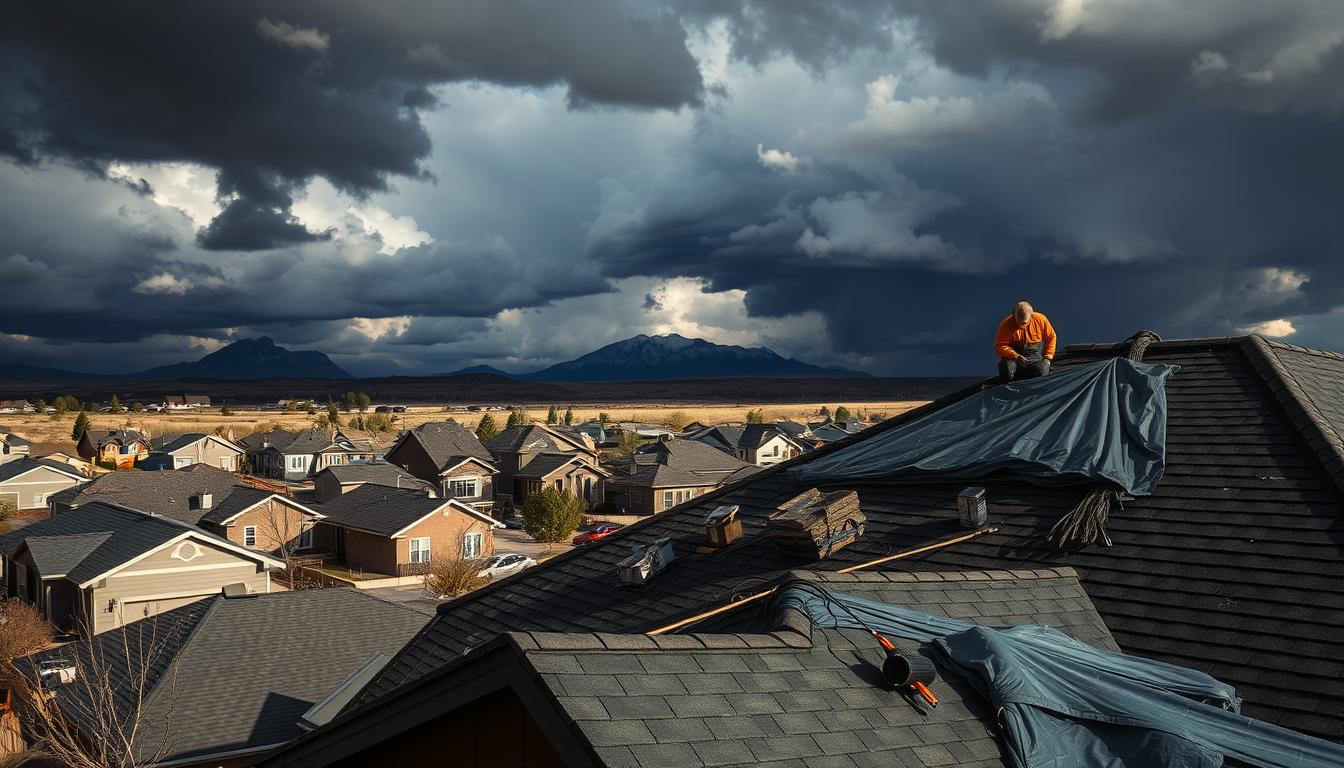Starting a home improvement project can be thrilling but also scary. It’s key to find a reliable contractor to avoid scams. Scammers promise great work but often leave your home worse than before. They might do poor work, damage your property, charge too much, or just take your money without doing anything.
So, how do you tell a good contractor from a scammer? It’s important to know the signs of a home improvement scam before hiring anyone.
The Rich Co Inc, a trusted home improvement company in Colorado Springs, CO, offers this guide. It helps homeowners avoid construction scams, building fraud, contractor deception, home renovation scams, and other unethical construction practices.
Key Takeaways
- Beware of contractors who pressure for immediate contract signing and demand upfront payments.
- Look for red flags like cash-only payments, erratic payment schedules, and subcontractors complaining of unpaid bills.
- Verify a contractor’s licensing, insurance, and reputation through the Better Business Bureau and customer reviews.
- Carefully review contracts, avoid blank spaces, and don’t be pressured into signing anything you don’t fully understand.
- Stay vigilant for common scammer tactics like claiming leftover materials or offering financing through a specific lender.
Signs of a Home Improvement Scam
Homeowners need to watch out for Contractor Deception, Home Renovation Scams, and Unlicensed Contractor Schemes. These scams can cause big financial losses and harm to your home. Scammers use Dishonest Contractor Tactics and Unethical Construction Practices to trick homeowners.
Tactics Scammers Use
Scammers use many tricks to get homeowners to trust them, such as:
- Knocking on doors looking for business because they are “in the area”
- Claiming to have leftover materials from a previous job
- Pressuring for an immediate decision
- Asking for full payment upfront or only accepting cash
- Suggesting the homeowner borrow money from a lender the contractor knows
They might also not have a real business address, make false promises about saving money or increasing your home’s value, and push you to sign contracts quickly.
To avoid these Home Improvement Scams, homeowners should do their homework. Research contractors, check their references, and make sure they are properly licensed and have the right documents. This can help keep you safe from these scams.
Avoiding Construction Scams
Home Construction Scams, Building Fraud, and Home Renovation Scams are serious issues. To stay safe, it’s important to be careful. Here are some key steps to avoid these scams:
- Hire licensed and insured contractors. Make sure they have the right licenses and insurance.
- Get recommendations from trusted sources. Ask friends, neighbors, or local agencies for good contractor referrals.
- Check for complaints. Look up the contractor’s history with the Home Builders Association and consumer protection.
- Read reviews carefully. Look at online reviews to see how satisfied customers are with the contractor’s work.
- Obtain multiple written estimates. Compare prices and work details from different contractors to find the best deal.
- Review the contract thoroughly. Understand all the contract terms before you sign it.
- Avoid upfront full payments. Pay the final amount only after you’re happy with the work done.
Checking the contractor’s credentials and references is vital. It helps you choose a reliable contractor and avoid scams. By following these steps, you can ensure your home improvement project goes smoothly.

The Home Improvement Loan Scam
Homeowners should watch out for a sneaky scam involving fake home improvement loans. Dishonest contractors might trick homeowners into signing papers quickly. This can lead to high-interest loans, even if the work is not done right or at all.
To dodge this scam, experts say homeowners should never agree to financing without checking the details. Take time to compare options, understand the loan terms, and talk to a lawyer or trusted advisor before signing. Real contractors won’t push you into a loan deal without your full okay.
Good contractors will clearly explain costs and financing choices. They won’t try to get you into a bad loan. Stay alert and make smart choices when financing your home project.
Avoiding the Home Improvement Loan Scam
- Never agree to contractor-arranged financing without shopping around and understanding the loan terms.
- Consult an attorney or trusted advisor before signing any paperwork related to financing.
- Be wary of contractors who rush you into a financing agreement without your full understanding and consent.
- Legitimate contractors will be transparent about project costs and financing options, not try to push you towards a questionable loan deal.
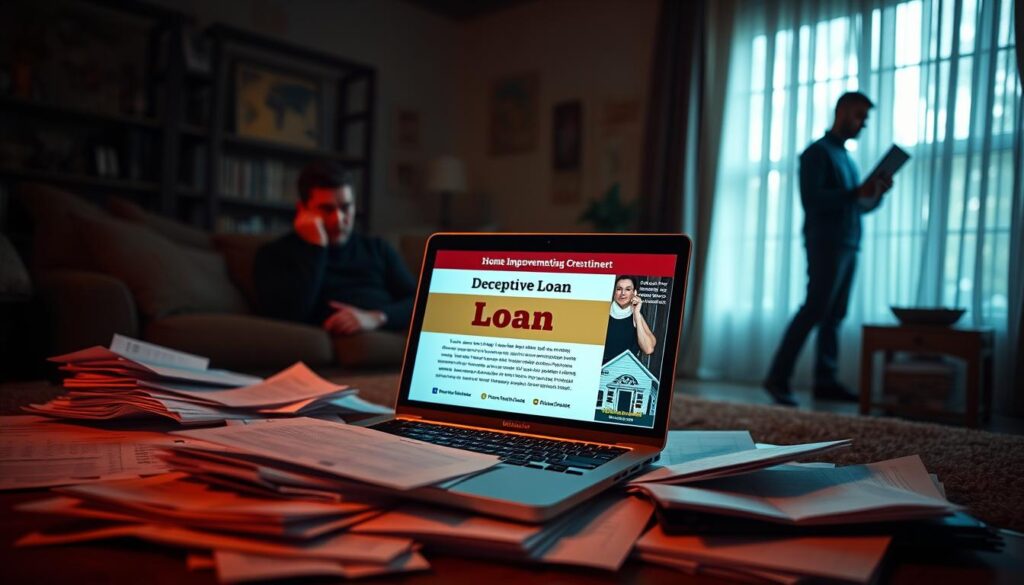
By being careful and making smart choices, homeowners can avoid the Home Improvement Loan Scam. A bit of caution can protect your home and money.
Construction Scams to Watch Out For
Homeowners need to watch out for scams when improving their homes. Scammers often target homes after natural disasters. They might show up at your door, claiming to be contractors.
Door-to-Door Sales
Be careful of anyone who comes to your door offering construction services. They might push you to sign a contract and pay upfront. Then, they might not show up to do the work.
About 10% of Americans have lost money to contractor scams, with an average loss of $2,426. Scammers might offer financing that’s not real. Always check a contractor’s credentials to avoid scams.

In some places, like California, you shouldn’t pay more than $1,000 or 10% of the project’s cost upfront. You must get permits for big projects to follow building codes. Real contractors will talk about the project, give clear costs, and let you think about it.
By being careful, you can avoid scams and ensure your project is done right. Watch out for scams during natural disasters and be cautious of door-to-door sales. This way, you can protect yourself and your home.
Choosing a Reputable Contractor
Choosing the right contractor is key for home renovations or construction projects. It helps avoid construction scams, building fraud, and home improvement fraud. A good contractor makes your project successful and stress-free.
Here are some tips to help you choose a reputable contractor:
- Seek out contractors with an established physical address. Fly-by-night operators are more likely to engage in home improvement fraud.
- Get multiple written bids and look for quality over just the lowest price. Shady contractors may vastly underbid the competition to win the job.
- Check references and inspect previous work. Legitimate contractors should have current references ready from both current and past clients.
- Verify the contractor’s licenses and credentials. Professional contractors will ensure they get the required building or remodeling permits themselves, without putting the burden on the homeowner.
- Be wary of any contractor who rushes you into signing a contract or makes unrealistic claims. Contractors demanding cash upfront have left many homeowners stranded.
By following these steps, you can protect yourself from home renovation scams and construction scams. This ensures a successful and stress-free home improvement project.

Contracts and Payments
Protecting yourself from construction scams and home improvement fraud starts with reviewing contracts and managing payments. Homeowners should carefully look over any contract before signing. Make sure there are no blank spaces and all work promised is listed.
One scam involves demanding all payment upfront, then disappearing or doing poor work. To avoid this, pay in parts as milestones are reached. Never sign off on work until it’s done right.
- Check the contract for any unclear parts or missing details.
- Don’t pay everything at once. Tie payments to project steps.
- Wait until you’re happy with the work before signing off.
- Watch out for contractors who say they found new problems to ask for more payments for home improvements.
Keeping control over payments and making sure contracts are followed can protect you. By being careful and following these tips, you can safely deal with home improvement fraud.
Conclusion
Keeping your home safe from construction scams and building fraud is crucial. You need to do your homework and check any home renovation contractor well. Learning about scammers’ tricks, avoiding rush sales, and checking contracts can help.
Smart payment choices also play a big role. This way, you protect your home and money.
Companies like The Rich Co Inc offer valuable advice in Colorado Springs, CO. They help homeowners find reliable contractors. Using the Better Business Bureau and getting several quotes can also prevent scams.
Being careful is key to protecting your home from fraud. With the right knowledge and tools, you can trust your home improvement contractors.
FAQ
What are the common tactics used by construction scammers?
How can I protect myself from construction scams?
What is the home equity loan scam and how can I avoid it?
What should I look out for with door-to-door contractor sales?
How do I choose a trustworthy contractor?
What should I look for in a contract and how should I handle payments?
Source Links
- https://todayshomeowner.com/home-finances/guides/avoiding-contractor-scams/
- https://consumer.ftc.gov/articles/how-avoid-home-improvement-scam
- https://www.ncoa.org/article/what-is-a-home-improvement-scam-learn-8-warning-signs/
- https://www.agfed.org/blogs/moneydig/8-ways-to-spot-a-home-improvement-scam/
- https://www.aarp.org/money/scams-fraud/info-2019/home-improvement.html
- https://www.cpai.com/Education-Resources/me-and-my-family/Homeowner-tips/How-to-Avoid-Home-Contractor-Scams
- https://www.houselogic.com/remodel/budgeting-contracting/top-5-contractor-scams-and-how-avoid-them/
- https://www.texasattorneygeneral.gov/consumer-protection/home-real-estate-and-travel/how-avoid-home-improvement-scams
- https://www.mysccu.com/learn/dont-let-home-improvement-scams-wreck-your-budget
- https://www.bobvila.com/articles/home-improvement-scams/
- https://www.sofi.com/learn/content/home-improvement-scams/
- https://rentalchoice.com/contractor-scams/
- https://lifehacker.com/money/contractor-scams-how-to-avoid
- https://zentekhomes.com/how-to-avoid-construction-scams/
- https://www.nahb.org/other/consumer-resources/dont-get-scammed-find-a-qualified-contractor
- https://www.bbb.org/all/home-improvement/how-to-hire-a-reliable-and-trustworthy-general-contractor
- https://www.levelset.com/blog/construction-fraud/
- https://fourthcapital.com/educational-article/scam-of-the-month-contractor-scam-awareness/
- https://curbio.com/curb-appeal-blog/contractor-fraud/
- https://www.investopedia.com/terms/c/contractor-fraud.asp
- https://esub.com/blog/ways-detect-construction-fraud/
- https://www.pjlesq.com/post/construction-fraud

